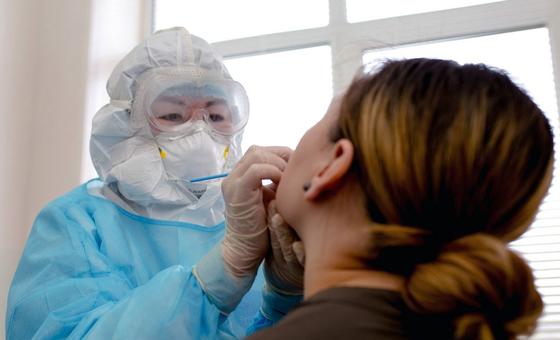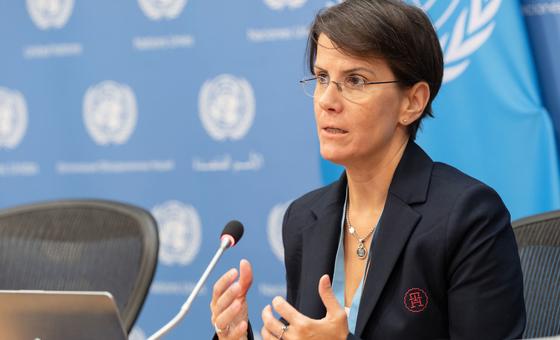As the number of new COVID-19 cases in the last week jumped by about 55 percent, a US-based researcher warned that more infections mean new variants as the older ones change through mutations, explaining the highly contagious omicron variant is a rapid multiplier.
“Omicron multiplies 70 times faster than the delta variant, that means an infected person is carrying (a) great load of virus and shedding more and more virus in surroundings,” said researcher Pratibha Bhalla at Van Oers Lab Department of Immunology at UT Southwestern Medical Center, Dallas, Texas.
For more coronavirus news, visit our dedicated page.
In an interview with Al Arabiya English, Bhalla clarified that every human being infected is acting as a platform for the virus.
“Spike protein on [the] virus enables its entry inside the cells, new mutations in spike protein allow the virus to evade antibodies generated by vaccines and enter human cells more effectively, hence favoring the spread of virus,” she warned.
For the latest headlines, follow our Google News channel online or via the app.
Bhalla who cited studies published by Pubmed and CDC that detail the main reason for the skyrocketing infections was “due to omicron’s R value, which is four times higher than the delta variant. R value is a number that tells how many people can get infected from another person. An omicron positive person can infect three to five people at one time.”
In its latest pandemic report published on January 12, the World Health Organization stated that there were about 15 million new COVID-19 cases last week and more than 43,000 deaths.
Despite health specialists’ insistence that the omicron variant is just like flu or common cold in young adults, Bhalla warned against underestimating its impact.
Omicron and vaccines’ effectiveness
Bhalla said unvaccinated omicron infections can experience symptoms, such as chest pain and shortness of breath, while infected vaccinated people who haven’t received the booster shot would experience symptoms, like headache, runny nose, watery eyes, cough with phlegm, scratchy throat, nausea, vomiting, diarrhea, muscle aches, fever, and chills.
Who are the most hit?
COVID-19 has always been particularly impactful on elderly persons, immunocompromised individuals, people with underlying conditions and long-term illnesses. This is not only because of their lower immunity, but also their increased exposure to healthcare facilities overwhelmed with COVID-19 positive patients.
“In [the] omicron wave, we see people with mild symptoms and many asymptomatic carriers who are refraining to isolate themselves and further contributing to spread. Making it [a] vicious circle,” Bhalla tells Al Arabiya English.
The US reported 1.35 million new infections on January 10, according to a Reuters tally, the highest daily total for any country in the world.
Read more:
COVID-19 cases rose by more than 50 percent, deaths stable: WHO
Explainer: Where are the COVID-19 tests that President Biden promised?
Omicron has higher asymptomatic carriage: Study

 World2 years ago
World2 years ago
 World2 years ago
World2 years ago
 Entertainment7 years ago
Entertainment7 years ago
 World7 years ago
World7 years ago
 Entertainment7 years ago
Entertainment7 years ago






